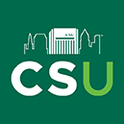- legal education,
- law teaching,
- law schools,
- legal philosophy,
- thinking like a lawyer,
- educational method,
- Langdell,
- legal science,
- law curriculum
The best way to represent the focus of the essay’s analysis is by outlining its content. The Purposes and Methods of American Legal Education seeks to examine the professional, technical and philosophical dimensions of graduate legal education. It considers purposes and strategies for enhancing education while offering a critique of what I consider to be fundamental flaws and assumptions that have inhibited the qualitative development of American legal education. Along with this analysis is consideration of primary methods of teaching and delineation of what the author considers the goals of the curriculum.
The coverage of the analysis is most accurately demonstrated by its structure, as follows:
I. Who Are We Teaching and Why?
II. A Historical Critique
A. Langdell and the “Scientific” Law School
B. The Anti-Intellectual Orthodoxy of the American Law School
III. “Thinking Like a Lawyer”
A. The Meaning of “Thinking” Like a Lawyer?
B. Legal Interpretation as Involving the “Original and Natural” Idea of Knowledge
C. Lawyers and the “Shelf” of Knowledge
D. The Dynamics of Legal Interpretation
IV. A Discussion of Educational Methods
A. Relatively Passive Educational Methods
B. More Active Methods
C. Distinctions between Educational Methods V. An Outline of Educational Goals and Methods

Link above is to a prepublication copy on SSRN.